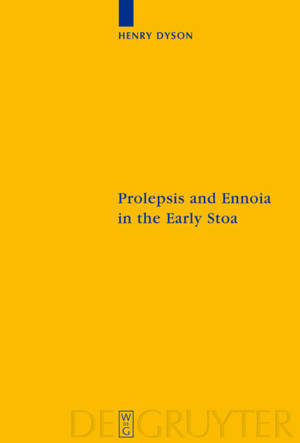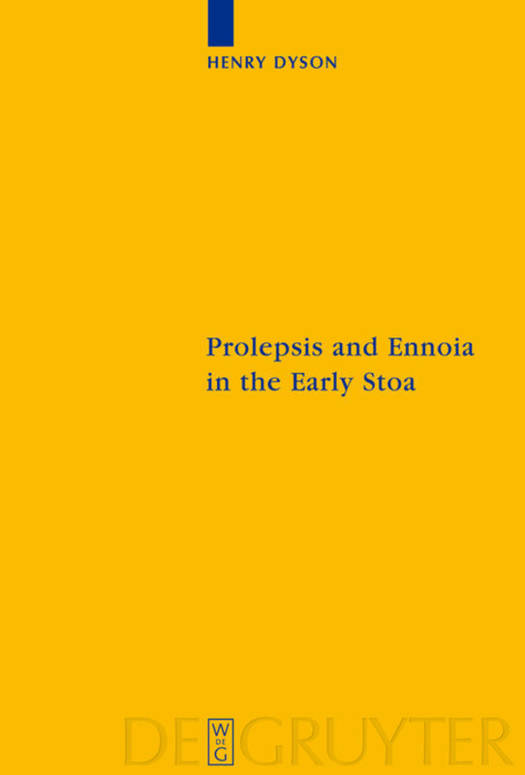
- Afhalen na 1 uur in een winkel met voorraad
- Gratis thuislevering in België
- Ruim aanbod met 7 miljoen producten
- Afhalen na 1 uur in een winkel met voorraad
- Gratis thuislevering in België
- Ruim aanbod met 7 miljoen producten
Omschrijving
This book reconstructs the Stoic doctrine of prolepsis. Prolepses are conceptions that develop naturally from ordinary experience. They are often identified with preconceptions (i.e. the first conceptions one unconsciously forms of something). However, this is inconsistent with the Stoics' claim that prolepseis are criteria of truth. Rather, prolepseis are analytically true claims embedded within one's ordinary conceptual scheme (e.g. the good is beneficial). When they have been articulated and systematized, prolepseis can be used to judge conceptual claims that go beyond the scope of sense-perceptual knowledge (e.g. pleasure is the good). The Stoics often refer to prolepseis as "common conceptions" to emphasize that they are shared by everyone, although in most people they remain unarticulated. This reconstruction suggests that Chrysippus was influenced by Platonic recollection to a greater extent than previously recognized. It supports the orthodoxy of Epictetus' statements about prolepsis and suggests that later authors who assimilate the Epicurean and Stoic doctrines were misled by the polemical attacks of Carneades. The argument of the book is supported by a comprehensive collection of fragments relating to prolepsis in Epicurus, the early Stoa, Cicero, Epictetus, Plutarch, Sextus Empiricus, and Alexander of Aphrodisias.
Specificaties
Betrokkenen
- Auteur(s):
- Uitgeverij:
Inhoud
- Aantal bladzijden:
- 288
- Taal:
- Engels
- Reeks:
- Reeksnummer:
- nr. 5
Eigenschappen
- Productcode (EAN):
- 9783110212280
- Verschijningsdatum:
- 16/10/2009
- Uitvoering:
- Hardcover
- Formaat:
- Genaaid
- Afmetingen:
- 163 mm x 234 mm
- Gewicht:
- 544 g

Alleen bij Standaard Boekhandel
Beoordelingen
We publiceren alleen reviews die voldoen aan de voorwaarden voor reviews. Bekijk onze voorwaarden voor reviews.












